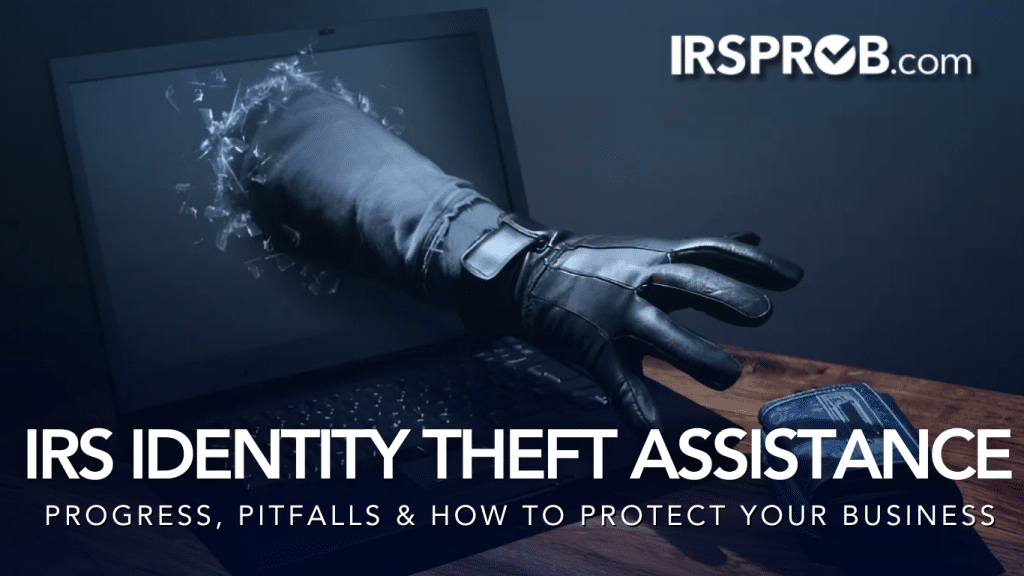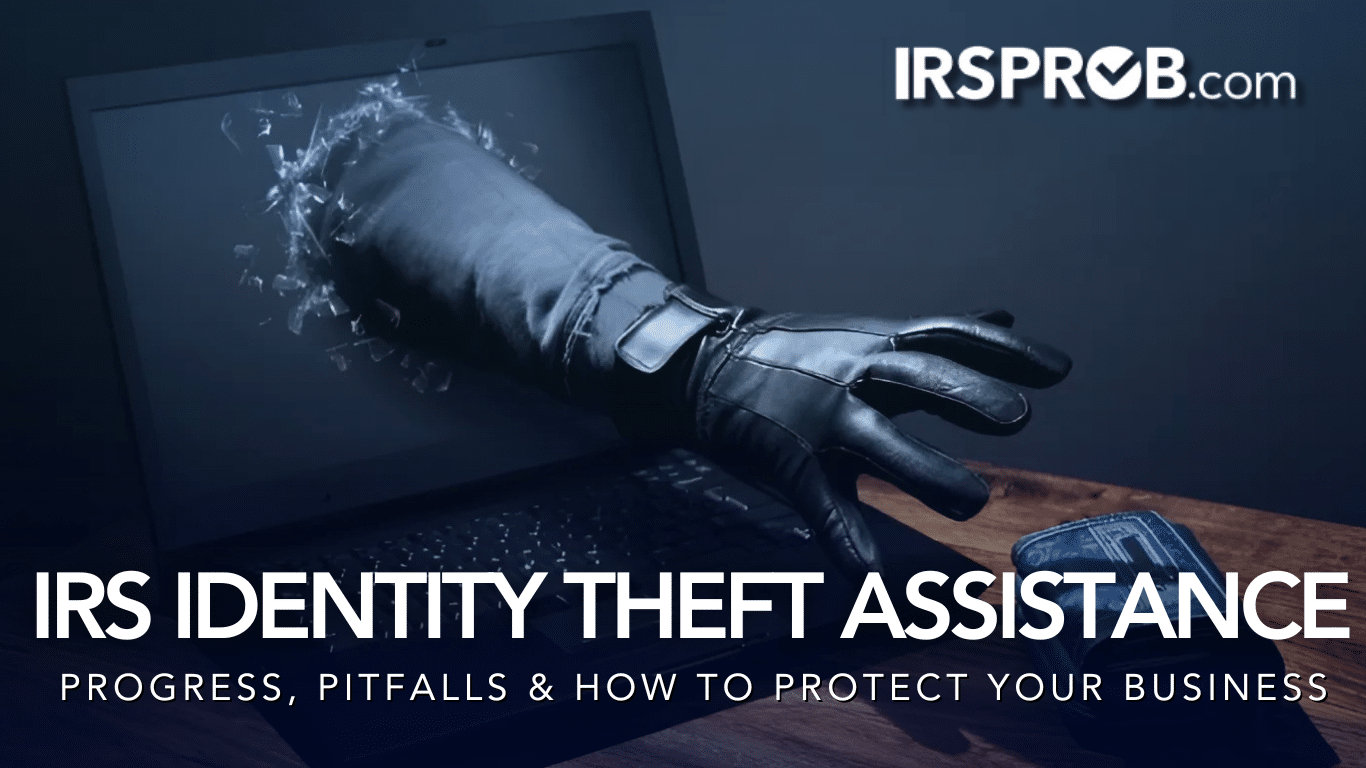
Identity theft is a nightmare, and when it involves taxes, it becomes an expensive and frustrating ordeal. Imagine expecting a well-deserved tax refund, only to find out that someone else has already claimed it in your name. Now, you’re stuck in a bureaucratic maze, waiting months—sometimes years—for the IRS to untangle the mess.
For years, business owners and individual taxpayers who fell victim to tax-related identity theft have faced excruciating delays in getting help. But there’s some good news: The IRS is making strides in reducing wait times for resolving these cases. However, scammers are still out in full force, preying on taxpayers through deceptive tactics. Let’s break down what’s happening, what’s improving, and what you need to do to protect yourself.
The IRS’s Slow Progress on Identity Theft Cases
The IRS has long struggled with helping identity theft victims, and for years, the processing time has only gotten worse. In fiscal year 2022, the average case took 399 days to resolve. By 2023, that ballooned to 556 days, and in 2024, it reached a staggering 676 days—nearly two years just to get the IRS to fix the problem.
But for the first time in years, there’s a slight improvement. So far in FY 2025, the average wait time has dropped to 506 days. While this is still an unacceptably long delay, it’s a sign that the IRS is making some headway in reducing its backlog.
In a small subset of cases, the IRS has managed to cut the wait time down to 100 days. This improvement comes as the agency prioritizes cases where victims are due refunds—meaning they are finally recognizing that these delays are financially devastating to taxpayers.
But here’s the catch: If your identity theft case isn’t in this high-priority subset, you could still be in for a long wait. And in the meantime, scammers are taking advantage of the chaos.
Scammers Are Exploiting the IRS’s Announcements
While the IRS is trying to clean up its backlog, criminals are taking full advantage of tax season. The Treasury Inspector General for Tax Administration (TIGTA) recently issued a warning about fraudsters impersonating the IRS.
These scammers are sending text messages claiming that recipients need to provide sensitive information to receive an Economic Impact Payment (also called a Recovery Rebate Credit). It’s a trap—these criminals are fishing for personal data to steal refunds, Social Security numbers, and even banking details.
How to Spot a Scam:
The IRS will NEVER text you asking for personal or financial details.
Federal websites always end in “.gov”—not “.com” or “.net.”If a message sounds urgent or threatening, it’s likely a scam.
If you receive a suspicious text or email claiming to be from the IRS, do not respond. Instead, report it to the IRS and TIGTA’s fraud hotline.
What Business Owners and Taxpayers Need to Do Now
If you’re a business owner or an individual taxpayer, identity theft can throw a wrench into your financial plans. Here’s how to protect yourself:
- ur financial plans. Here’s how to protect yourself:
- Monitor Your IRS Account:
The IRS offers an online account system where you can track your tax activity. Regularly check it to ensure no fraudulent filings appear in your name. - Use an Identity Protection PIN (IP PIN):
The IRS offers an IP PIN, a six-digit code that adds an extra layer of security to your tax return. Once you opt in, no one can file a tax return under your name without that PIN. - File Early to Beat Scammers to the Punch:
Fraudsters often file fraudulent tax returns early in the season. By submitting your return as soon as possible, you reduce the risk of them beating you to it. - Be Cautious with Emails and Calls:
If someone contacts you claiming to be from the IRS, don’t provide personal information. Instead, verify by calling the IRS directly at 1-800-829-1040. - Work with a Tax Professional:
If you’ve been a victim of tax-related identity theft, the process of fixing it can be overwhelming. A tax professional can communicate with the IRS on your behalf, ensuring the proper forms are submitted and following up on delays.
Final Thoughts: The IRS is Making Progress, But You Need to Stay Vigilant
While it’s a relief that the IRS is making efforts to reduce wait times for identity theft victims, there’s still a long way to go. If you’re caught in an IRS identity theft nightmare, patience and persistence are key—but that doesn’t mean you have to face it alone.
At IRSProb, we specialize in handling IRS issues for business owners and individuals. If identity theft has disrupted your tax filing, we’ll fight for you and work to get your case resolved as quickly as possible.
If you need help, IRSProb has your back. Don’t let identity theft or IRS delays derail your finances—contact us today and let’s get this sorted out for you.








